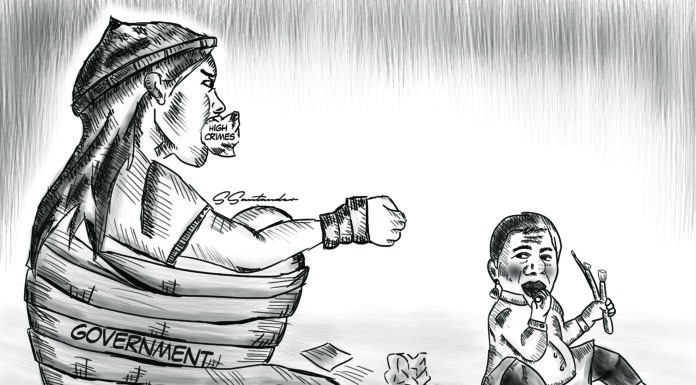A PHILOSOPHICAL theologian has urged Thomasians to rekindle the basic Christian value that is “seemingly forgotten and taken for granted”––dignity, pointing out that it is violated not just by atrocities such as war and slavery, but by cloning and human engineering.
William Sweet, a Canadian professor, said dignity, being the core of human rights, distinguishes people from mere objects or commodities.
“Dignity involves what persons are not. If you treat your body or other person’s body a property, and (for instance) the government takes your property, what logically follows that?” Sweet said.
Sweet added that some people downplay the importance of dignity and are not even aware of it.
“People have forgotten the meaning of dignity. Just because people like or tolerate something, does not mean it is right,” Sweet said in an interview after his lecture titled “Philosophy of the Human Person: Human Dignity and Freedom” at UST Graduate School last July 9.
Sweet quoted Laval University professor Thomas De Konnick who said that “it is perhaps only when dignity is tested that we are most aware of it.”
He cited war, slavery, human cloning, and prostitution as concrete examples of violations against human dignity.
According to Sweet, the principal standard of ethics is not about “simply avoiding doing harm, nor justified by the presence of a person’s mere individual consent.”
He took surrogate mothers—women who voluntarily bear a child in exchange of money after labor—as living examples of the unjust practice of consent.
“We would find it morally objectionable if someone were to attempt to engineer a child who, like a well-behaved dog, wanted to do nothing but make his parents happy and serve them as his masters,” Sweet said.
Sweet also affirmed that slavery, just like “human engineering” is a clear violation, not just against one child or person, but to humanity.
Apart from being a philosophy professor and director of the Centre for Philosophy, Theology and Cultural Traditions at St. Francis Xavier University in Nova Scotia, Sweet is also president of the World Union of Catholic Philosophical Societies.
A formidable task
Sweet emphasized that human dignity ought to be respected, “but at the same time, it is not just up to us to determine what our dignity is and what it licenses us to do,”
Sweet has been delivering international lectures and has authored more than 30 books on religion and culture. This year, Sweet opted to visit UST and Ateneo de Manila University. Adrienne Jesse A. Maleficio















